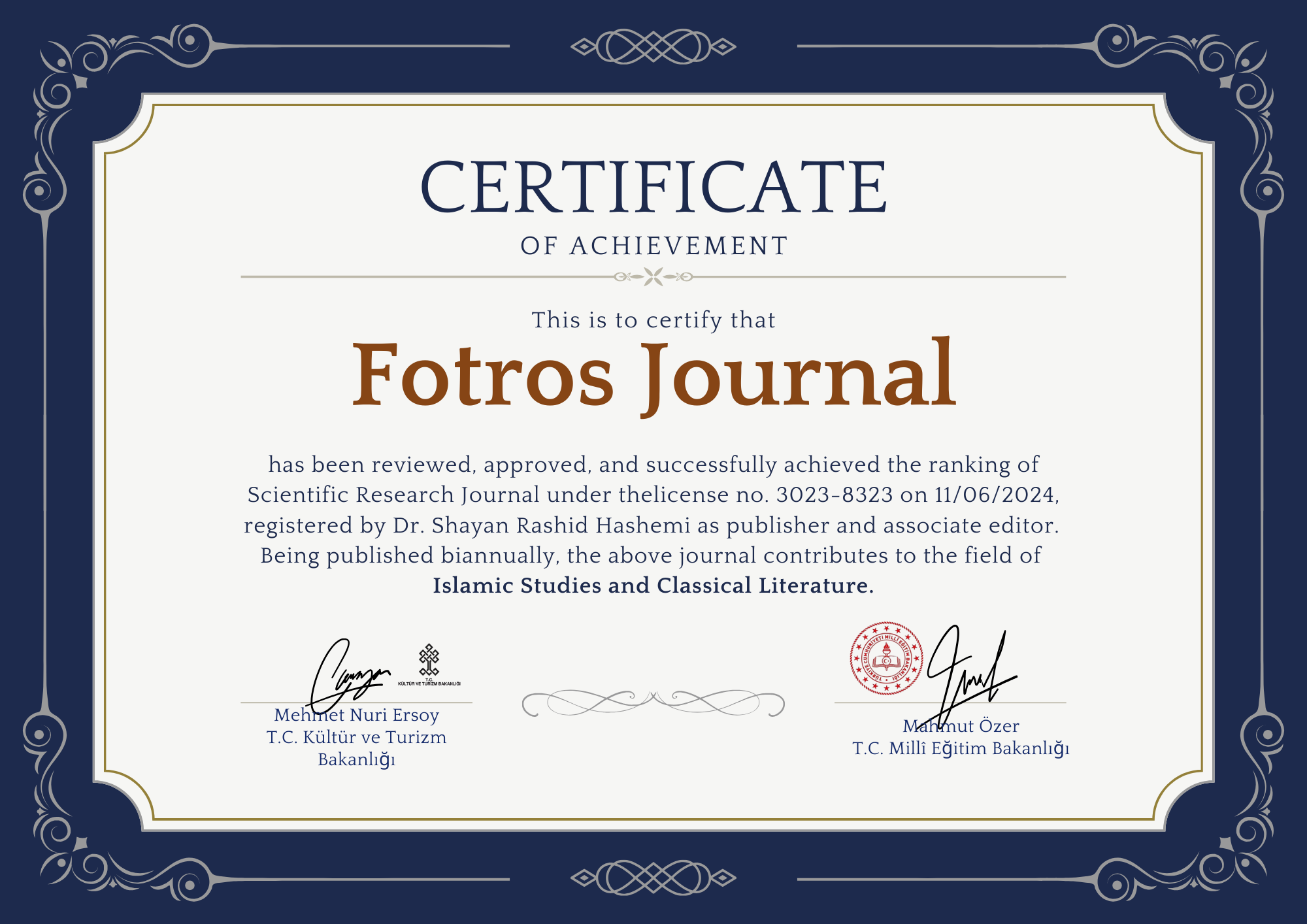CALL FOR PAPERS
Call for Papers:
Fotros Journal welcomes original research articles, insightful essays, and thought-provoking reviews that contribute to the vibrant discourse on all classical literatures and Islamic studies. We invite scholars, researchers, and writers to submit their work for consideration in our upcoming issues.
We are particularly interested in submissions that explore:
- New perspectives on classical texts and authors from various cultures and traditions
- The intersection of literature, history, religion, and philosophy
- The relevance of classical traditions in the modern world
- Interdisciplinary approaches to literary and religious studies
Please review our submission guidelines and deadlines before submitting your work. We look forward to reading your contributions!
Read more about CALL FOR PAPERS


